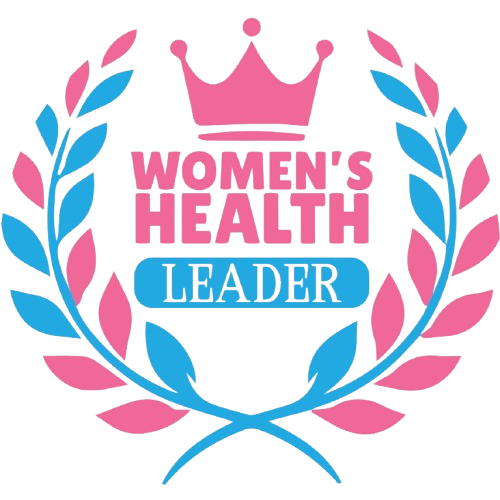In the 9th week of pregnancy, your baby, though still tiny, is making incredible progress. At this stage, your little one is about the size of a grape, but don't let their small size fool you—they're already starting to look more like a baby than ever before.
One of the most exciting developments happening now is the rapid growth of your baby's limbs. Those tiny arms and legs that were mere buds just a few weeks ago are now elongating and taking on a more defined shape. Your baby's fingers and toes are also beginning to form, although they're still webbed at this point. It won't be long before those tiny digits start to separate and become more distinct.
While all this growth is happening, your baby is also starting to make some early movements. At 9 weeks pregnant, these movements are still very subtle and are more like twitches than kicks. You might not be able to feel them yet. Rest assured, your little one is already practicing essential movements. These movements will eventually become those adorable kicks and punches you'll feel later in your pregnancy.
These early movements, known as "quickening," are crucial for your baby's development. They help to strengthen their muscles and joints, preparing them for the day when they'll be able to move around more freely. These movements also play a role in the development of your baby's nervous system, helping to fine-tune their reflexes and coordination.
While you might not be able to feel your baby's movements just yet, you may start to notice other changes in your body. Your uterus will continue to expand. This is to accommodate your growing baby. This may lead to some mild cramping or discomfort. You might also notice changes in your breasts, such as tenderness or swelling, as they prepare for breastfeeding.
As you progress through your pregnancy, you'll start to feel more and more connected to your baby. Feeling those first kicks and movements is an incredible experience that many mothers describe as magical. It's a reassuring sign that your baby is growing and thriving inside you. If you're eager to feel your baby's movements, you might also wonder when you can expect to start feeling those first flutters. While every woman and every pregnancy is different, most women start to feel their baby's movements between 18 and 22 weeks. Factors like the position of your placenta and the number of pregnancies you've had can also affect when you feel those first kicks.
As you eagerly anticipate feeling your baby's movements for the first time, take comfort in knowing that these early movements are a sign of your baby's health and vitality. In the meantime, enjoy this special time in your pregnancy and marvel at the miracle of life growing inside you.
Symptoms of Motherhood in 9th week
As you enter the 9th week of pregnancy, you may find that your body is undergoing some noticeable changes. These changes are a natural part of pregnancy and are caused by the hormonal fluctuations and physical changes taking place inside you.
One of the most common symptoms you may experience in the 9th week of pregnancy is morning sickness. This is caused by the higher levels of hormones in your body, which can lead to nausea and vomiting, particularly in the morning. While this can be unpleasant, it's usually a positive sign that your pregnancy hormones are strong and your baby is developing well.
In addition to morning sickness, you may also notice that your waistline is expanding. Your uterus will grow during this period. This is to accommodate your growing baby. Your abdomen will start to protrude slightly, giving you a more rounded appearance. This is completely normal and is a sign that your baby is growing as they should be.
Along with these physical changes, you may also notice changes in your breasts. Your breasts may become larger, more tender, and more sensitive to touch. You may also notice that your nipples darken and become more prominent. These changes are all normal and are caused by the increased levels of hormones.
Another common symptom of pregnancy in the 9th week is fatigue. Your body will start to work hard. This is to support the growth and development of your baby, which can leave you feeling tired and sluggish. It's important to listen to your body and get plenty of rest during this time.
Some women also experience mood swings in the 9th week of pregnancy. The hormonal changes can have a significant impact on your mood, leading to feelings of irritability, anxiety, or sadness. It's important to remember that these mood swings are normal and are a result of the changes happening in your body.
While these symptoms can be challenging, it's important to remember that they are temporary and are a sign that your body is doing the incredible work of growing a new life. By taking care of yourself and listening to your body, you can help manage these symptoms and enjoy a healthy pregnancy.
If you're experiencing severe or persistent symptoms, it's important to talk to your healthcare provider. They can offer guidance and support to help you manage your symptoms. It also ensures that you and your baby stay healthy throughout your pregnancy.
Foods to take in the 9th week of pregnancy
During the 9th week of pregnancy, it's essential to have a focus on having a balanced diet and nutritious food items to support your health and the development of your baby. Here are some important foods to include in your diet during this stage of pregnancy:
- Folate-rich Foods: Take foods that are rich in folate. This includes leafy green vegetables, citrus fruits, and fortified cereals, are essential during pregnancy. Folate plays a crucial role. This helps in preventing neural tube defects in the developing baby.
- Iron-rich Foods: Iron is important for the production of red blood cells. They are needed to carry oxygen to your baby. Include foods like lean meats, poultry, fish, beans, and fortified cereals. Adding these in your diet to ensure you're getting enough iron.
- Calcium-rich Foods: Calcium is essential for the development of your baby's bones and teeth. Include dairy products in your diet. This is like milk, cheese, and yogurt in your diet, as well as calcium-fortified foods like orange juice and tofu.
- Protein-rich Foods: Protein is important for the growth and development of your baby. Make sure to add sources of lean protein such as chicken and turkey. Also include foods such as fish, eggs, and legumes in your diet.
- Whole Grains: Whole grains including brown rice and whole wheat bread can be helpful. Also include oats which are rich in fiber and nutrients. They can help keep you feeling full and satisfied while providing essential nutrients for you and your baby.
- Healthy Fats: Omega-3 fatty acids are important for your baby's brain development. Include sources of healthy fats like salmon, sardines, walnuts, and flaxseeds in your diet.
- Fruits and Vegetables: Aim to include a variety of fruits and vegetables in your diet. This is to ensure you're getting a range of vitamins and minerals. These foods also provide fiber, which can help prevent constipation, a common issue during pregnancy.
- Hydration: Staying hydrated is important during pregnancy. Drink plenty of water throughout the day and include hydrating foods. This includes fruits and vegetables in your diet.
- Small, Frequent Meals: Eating small and frequent meals throughout the day can help manage nausea. It can also keep your energy levels up. Try to include a balance of carbohydrates, protein, and healthy fats in each meal and snack.
By focusing on a balanced diet rich in nutrients, you can support your health and the development of your baby during the 9th week of pregnancy. If you have any specific dietary concerns or restrictions, be sure to talk to your healthcare provider for personalized advice.
Do you need a Doctor Consultation?
Counseling in the 9th week of pregnancy
- Emotional Support: Pregnancy can be a rollercoaster of emotions. Many women experience feelings of anxiety, fear, and uncertainty. Counseling provides a safe space for women to express these feelings. They receive support and reassurance. Counselors can help women navigate their emotions. They also help in developing coping strategies to manage stress and anxiety.
- Information and Education: Counseling sessions can provide valuable information about the changes happening in a woman's body during pregnancy. This knowledge can help women understand what to expect and empower them to make informed decisions about their health and the health of their baby.
- Nutritional Guidance: Good nutrition is essential during pregnancy, and counselors can provide guidance on healthy eating habits and nutritional requirements. They can help women develop meal plans that meet their specific needs and address any concerns or questions they may have about their diet.
- Managing Symptoms: Many women experience physical symptoms such as morning sickness, fatigue, and breast tenderness during the 9th week of pregnancy. Counselors can offer strategies for managing these symptoms and improving overall comfort and well-being.
- Partner Support: Counseling sessions can also include partners, providing an opportunity for them to ask questions, express concerns, and learn how to support their partner during pregnancy. This can help strengthen the bond between partners and prepare them for the journey ahead.
- Preparing for Labor and Delivery: While labor and delivery may seem far off, it's never too early to start preparing. Counselors can provide information about the stages of labor, pain management techniques, and what to expect during childbirth. This can help women feel more confident and prepared as their due date approaches.
- Postpartum Planning: Counseling can also include discussions about postpartum care and planning. This can include topics such as breastfeeding, newborn care, and self-care for the mother. Having a plan in place can help women feel more prepared for the postpartum period and reduce feelings of overwhelm.
- Community Resources: Counselors can also connect women with community resources and support groups for additional support. This can help women build a network of support and connect with others who are going through similar experiences.
Overall, counseling can provide invaluable support and guidance for women during the 9th week of pregnancy. By addressing emotional, physical, and informational needs, counseling can help women have a healthy and positive pregnancy experience.
Tests to take in the 9th week of pregnancy
- Blood Tests: Blood tests are commonly performed during the 9th week of pregnancy to check for various factors, including blood type, Rh factor, and iron levels. These tests can help identify any potential issues that may require further monitoring or treatment.
- Ultrasound: An ultrasound may be performed during the 9th week of pregnancy to confirm the due date and check on the baby's development. This early ultrasound can also detect the presence of a heartbeat, which is an important milestone in the pregnancy.
- Genetic Screening: Genetic screening tests, such as the nuchal translucency test or cell-free DNA test, may be offered during the 9th week of pregnancy to assess the risk of certain genetic conditions, such as Down syndrome. These tests are optional and can provide valuable information about the baby's health.
- Pap Smear: A Pap smear may be recommended during the 9th week of pregnancy to screen for cervical cancer. This test is safe to perform during pregnancy and is an important part of prenatal care.
- Urinalysis: A urinalysis may be done during the 9th week of pregnancy to check for any signs of infection or other issues. This test can help identify potential problems early on and ensure that appropriate treatment is provided.
- Glucose Screening: A glucose screening test may be recommended during the 9th week of pregnancy to check for gestational diabetes. This test involves drinking a sugary solution and then having your blood sugar levels checked after a certain amount of time.
- Thyroid Function Test: Thyroid function tests may be recommended during the 9th week of pregnancy to check for thyroid disorders, which can affect both the mother and the baby if left untreated.
- Other Tests: Depending on your medical history and risk factors, your healthcare provider may recommend other tests during the 9th week of pregnancy. These may include tests for sexually transmitted infections, hepatitis B, and other conditions.
Each pregnancy is a singular journey, unique to every woman and her body. It's crucial to stay attuned to your body's signals and maintain open communication with your healthcare provider. A4 Fertility Centre's Birthing classes are meticulously crafted to provide you with the necessary knowledge and support to navigate this journey smoothly, ensuring a healthy and joyful pregnancy. Embrace this extraordinary phase of your life and marvel at the miracle of new life blossoming within you.




